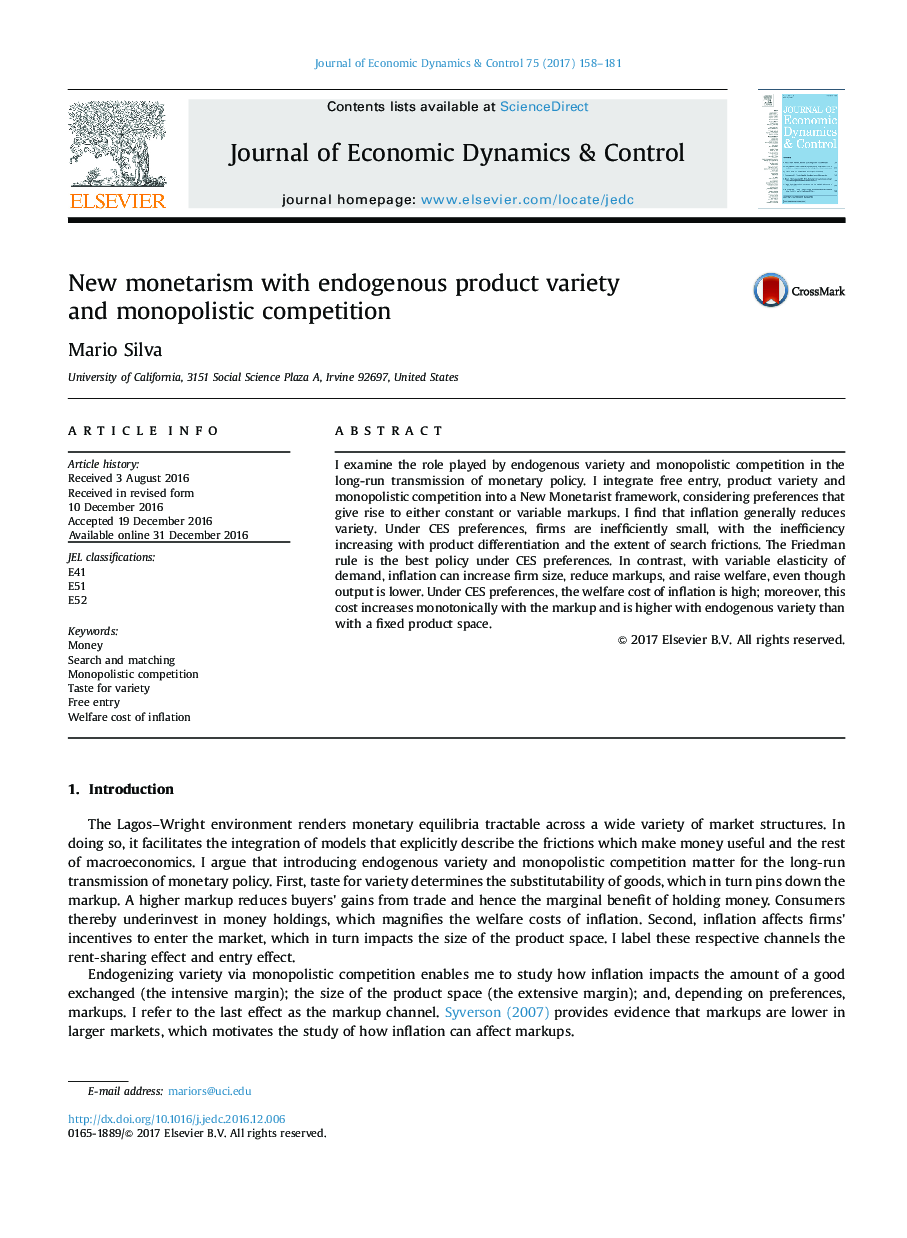| Article ID | Journal | Published Year | Pages | File Type |
|---|---|---|---|---|
| 5098044 | Journal of Economic Dynamics and Control | 2017 | 24 Pages |
Abstract
I examine the role played by endogenous variety and monopolistic competition in the long-run transmission of monetary policy. I integrate free entry, product variety and monopolistic competition into a New Monetarist framework, considering preferences that give rise to either constant or variable markups. I find that inflation generally reduces variety. Under CES preferences, firms are inefficiently small, with the inefficiency increasing with product differentiation and the extent of search frictions. The Friedman rule is the best policy under CES preferences. In contrast, with variable elasticity of demand, inflation can increase firm size, reduce markups, and raise welfare, even though output is lower. Under CES preferences, the welfare cost of inflation is high; moreover, this cost increases monotonically with the markup and is higher with endogenous variety than with a fixed product space.
Related Topics
Physical Sciences and Engineering
Mathematics
Control and Optimization
Authors
Mario Silva,
